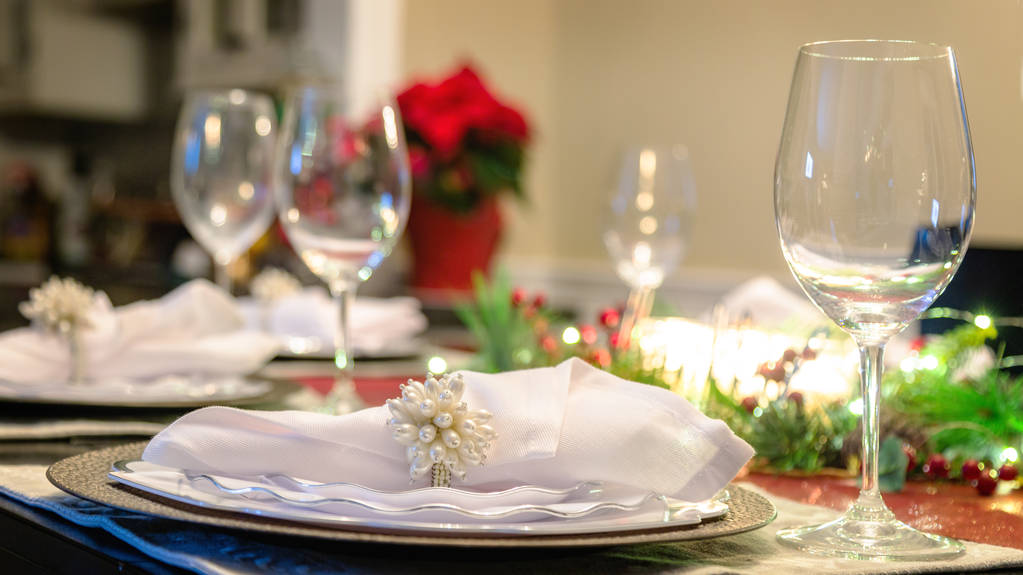Christmas dinner is about feasting with the family. But when we dine so festively, we should be all the more careful not to waste food. Avoid holiday food waste with these tips.
The rest of the Christmas roast ends up in the garbage, the dumplings would have been enough for several large families. It seems absurd: At the festival of love, we treat food in a particularly careless way. And on the other hand, we often become more aware during this time that other people are in need and, for example, dependent on the food banks.
Food waste is a problem at any time of the year
It should actually be a matter of course throughout the year that we handle food carefully and prevent food waste wherever possible. But the numbers are sobering: According to a study commissioned by the Federal Ministry of Food and Agriculture, every consumer throws away around 75 kilograms of food every year.
47 percent of this waste in households would be avoidable and another 18 percent partially avoidable. Unavoidable food waste is, for example, egg, onion or banana skins, which of course we could not eat. We are responsible for the rest ourselves because we shop wrong or throw away food too early.
The best tips against food waste at Christmas
For the Christmas days, when we often feast a lot or have to provide more people with (celebratory) food than in everyday life, you should consider the following things – to prevent unnecessary food waste from the outset.
1. Plan the Christmas menu carefully
How many people come to the feast, which ingredients do you need exactly, what do you cook for lunch and dinner on all public holidays? The more far-sighted you are planning the Christmas menu, the more targeted you can buy the right quantities. That way, there are no exaggerated hamster purchases, some of which end up in the trash.
2. Talk to guests beforehand
It can also be helpful to involve family members in the planning: how many dumplings does your uncle like to have as a side dish? Does the little sister even want a soup beforehand or is that too much for her? Of course, it should be possible to have a second helping if someone is hungrier than expected. But if you make menu planning as individual as possible, you can influence that less is left over overall.
3. Offer lighter fare
Many families have traditional dishes that are served at Christmas. Anyone who is open to modifying traditions a little can try to make what is often very heavy fare lighter. Roast goose with red cabbage and dumplings is hearty and filling – there is a high risk of not eating everything. How about a fresh salad as a side instead? Fish or vegetarian main dishes are also less digestible and the risk of food waste is reduced.
4. Prefer loose goods when shopping
In order to buy the right amount of food as precisely as possible, it is advisable not to use large packs. It is better to buy loose than packaged goods or choose groceries from the deli counter. By the way, this has two advantages: Not only can you more easily adjust the purchases to the number of guests, but you also avoid unnecessary packaging waste.
5. Buy last-minute fresh produce
Do all the Christmas shopping a few days in advance? That’s not a good idea. It makes more sense to procure all food that can be stored well for a long time with sufficient lead time. If the menu includes fresh items like lamb’s lettuce and perishable fruits and vegetables, ideally stock up on those ingredients the day before Christmas Eve. This way you ensure that the food for the feast does not spoil beforehand – causing food waste and despair in the kitchen.
6. Serve small portions
Christmas dinner is the epitome of gluttony. Still, we don’t have to encourage the habit of overeating. Serve multiple courses, but each in small portions – so all guests feel spoiled without the feast getting out of hand. Eating less often means less food waste.
7. Store leftovers properly
If something is left over after the feast, the elaborately prepared meal does not have to end up in the garbage. Store the leftovers in separate containers in the fridge – note the different temperature zones -, freeze them (label with the current date!) or preserve them in some other way, for example by boiling them down. Very important: Do not leave meat and fish at room temperature for a long time and it is best to freeze both immediately after eating.
8. Use the leftovers creatively
Aside from the fact that a second portion of Christmas dinner tastes just as good for lunch the next day: be creative and think about how you can use the leftovers to make something new that is just as delicious. Leftover raclette meat can be fried, for example, and used in casseroles, cold in salads, etc. Leftovers taste cold with tartar sauce, with salad or as a sandwich. Diced and fried with an egg in a pan, dumplings become a completely different dish.

9. Make other people happy
The nice elderly woman who lives next door is spending Christmas alone? She will certainly be happy if you bring her a portion of roast or a piece of stollen if you have miscalculated the amount. You can probably think of another way to make other people happy with a part of your celebratory meal!

